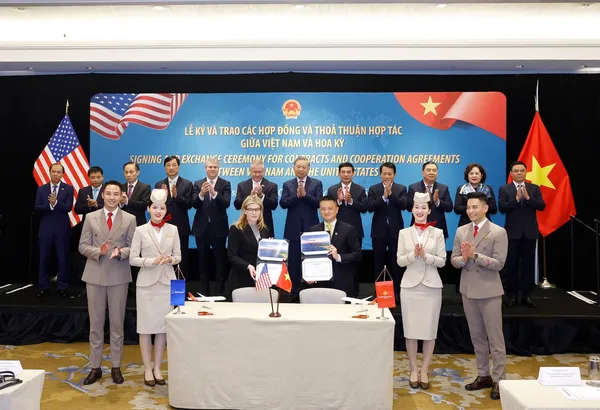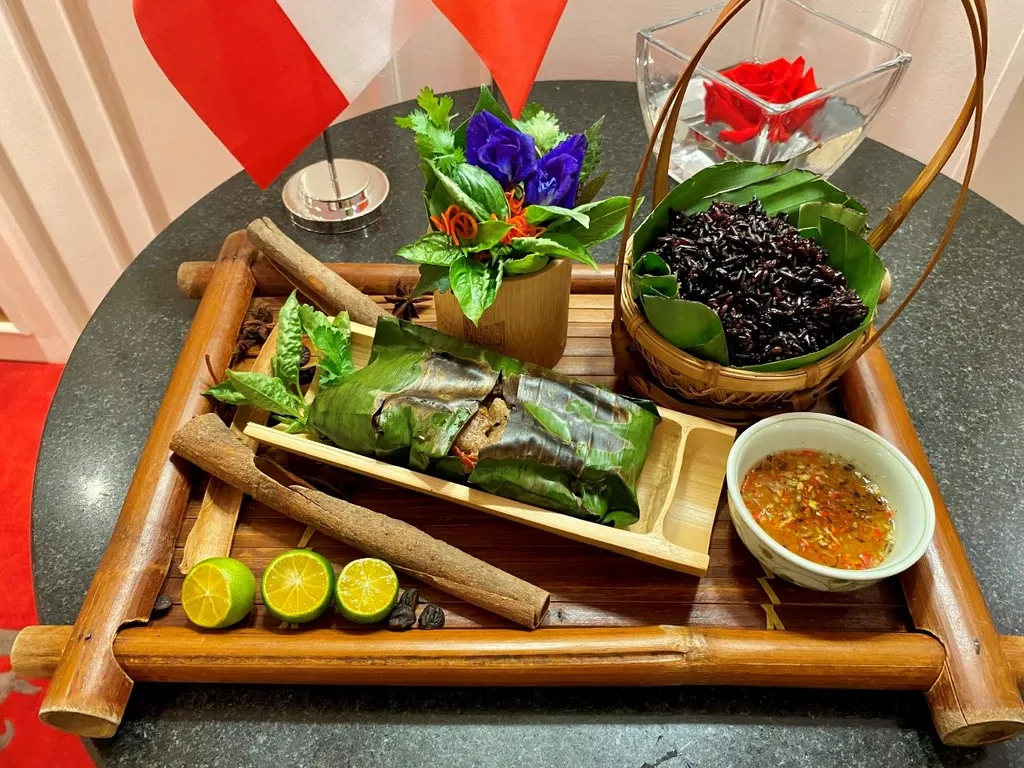 Brandinfo
Brandinfo

Chile is among the world’s top 25 food-exporting countries. In 2024, its food and beverage exports topped US$26 billion, with a range of products including salmon, fruit, wine, pork, and poultry.
More than 55 per cent of Chile’s export value is directed towards Asian markets, with key partners including Việt Nam, China, Japan, South Korea, India, Thailand, Malaysia, Australia, and Indonesia. These partnerships reflect relations built on respect, trust, and mutual benefit.
Chilean agricultural exporters are now looking forward to introducing another of their key products, pork, to the Vietnamese market.
 |
| Andrés Meza, Consul of Chile in Việt Nam and Laos (fifth from left), Rosaura Campusano, Chile’s Agricultural Attaché in Việt Nam (fourth from left), Juan Carlos Domínguez, President of the Chilean Meat Exporters Association (ChileCarne) and head of ChilePork (second from left), and other attendees at the Chilean pork product introduction in Việt Nam. Photo: ChileCarne |
Juan Carlos Domínguez, President of the Chilean Meat Exporters Association (ChileCarne) and head of ChilePork, said: “Chile’s main food exports include salmon, fruit, wine, and meat, with pork being our largest export. Around 60 per cent of our pork production is destined for export.”
“We are proud to be among the world’s top five pork exporters, and our main markets are in Asia, including China, Japan, and South Korea. We hope Việt Nam will soon welcome Chilean pork and become one of our key export destinations in the future.”
Chile’s distinctive geographic location makes it a true ‘biosecurity island’, with seven climatic zones allowing the production of a wide range of world-class food products. Protected by natural barriers, the country remains free from animal diseases such as African swine fever (ASF) and porcine reproductive and respiratory syndrome (PRRS).
According to ChileCarne, the Chilean pork industry maintains this status through strict biosecurity standards at all facilities and close cooperation with the Agriculture and Livestock Service (SAG) to ensure border control.
Its pork is produced according to the highest standards of hygiene and food safety. Each exporting company operates a vertically integrated model that ensures full control over every stage of the process, from animal feed and breeding to slaughtering, processing, and commercial distribution. This model guarantees 100 per cent traceability across the production chain while maintaining a stable supply for both domestic and international markets.
The development of Chile’s pork industry is rooted in a circular economy model, supported by significant investments in technology that allow production growth without compromising natural resources. About 95 per cent of Chile’s pork production complies with the Chile Origen Consciente sustainable standard, aligned with the United Nations’ 17 Sustainable Development Goals (SDGs) for 2030.
 |
| Chilean pork can be combined harmoniously with Vietnamese culinary styles. Photo: ChileCarne |
“Over the past two decades, the industry has reduced water consumption per animal by 69 per cent and greenhouse gas emissions per pig by 24 per cent. Meanwhile, 82 per cent of livestock waste is now treated using advanced waste and wastewater management technologies,” said Juan Carlos Domínguez.
“Sustainability remains a strategic pillar for Chile’s meat industry. ChileCarne promotes responsible production that balances competitiveness, environmental protection, and social welfare.
“Circular economy practices are strengthened through the use of by-products, nutrient recycling, and efficient resource management to minimise environmental impact, while gradually integrating clean energy sources into production.
“The industry also adheres to best practices in animal welfare and biosecurity, with ongoing efforts to enhance and verify its sustainable performance.”
The initiative to export pork to Việt Nam marks another step forward in strengthening economic ties between the two countries.
Andrés Meza, Consul of Chile in Việt Nam and Laos, highlighted the broader context of bilateral cooperation. He said: “Chile aims to be an open, prosperous, and reliable nation with strong political and economic institutions. We have signed 35 free trade agreements with 65 economies, and Việt Nam is one of Chile’s strategic and priority partners.
“Our economic relations are complementary – Chile can offer expertise and products in mining and agriculture, while Việt Nam brings dynamism in industry, particularly electronics.”
Emphasising the same optimism, Rosaura Campusano, Chile’s Agricultural Attaché in Việt Nam, expressed her hopes for closer collaboration.
“We are keen to work with Việt Nam’s Ministry of Agriculture and Rural Development in this area,” she said.
“Việt Nam is a very attractive destination for us. Since signing our Free Trade Agreement in 2014, we are confident that our products are well suited to the Vietnamese market. We look forward to the support of Vietnamese authorities and business partners to ensure Chilean pork can soon reach Vietnamese consumers.”
Once the final approval is granted, Chile’s high-quality pork is expected to make its way to Vietnamese tables, marking a new chapter in agricultural trade between the two nations./.